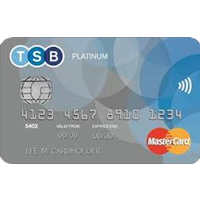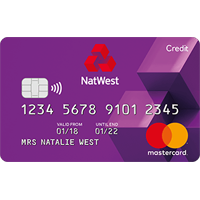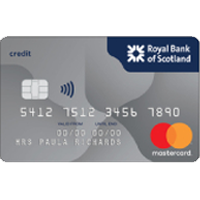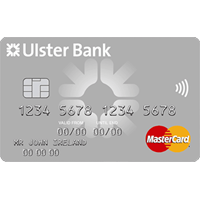

But savvy borrowers could avoid higher costs by taking advantage of longer interest-free periods.
Using a credit card for your spending has become more expensive as the average purchase annual percentage rate (APR), which includes the cost of interest and any card fees, rose to 35.7% APR in June 2025.
This is the highest this figure has been since at least June 2006 when Moneyfacts’ records began, according to data from the most recent Moneyfacts UK Unsecured Lending Trends Treasury Report.
By contrast, the average credit card purchase APR stood at 35.3% one year ago and just 31.2% in June 2023.
“A combination of factors led to a hike, with Halifax and Bank of Scotland increasing their purchase and cash rates during the quarter, but new credit cards were also launched onto the market,” explained Rachel Springall, Finance Expert at Moneyfactscompare.co.uk.
“One such deal from Zable is suited to consumers who have a limited credit history and find it difficult to acquire a typical credit card,” she noted.
However, it’s not all bad news for borrowers as the number of interest-free credit card deals on the market increased to a two-year high in June. There were 64 interest-free purchase credit card offers available at the start of the month, while the number of interest-free balance transfer deals rose to 67.
Borrowers not only have more 0% interest deals to choose from, but they can also benefit from longer interest-free periods. Indeed, the average interest-free period on credit card purchases rose from 267 days in March to 286 days in June, the longest this has been since October 2022 when the average term stood at 300 days.
The positive activity has continued into June, with the longest 0% purchase period increasing to 25 months after TSB extended the term on its Platinum Purchase Card Mastercard last week.
Last updated: 17/06/2025


Account Name: Platinum Purchase Card Mastercard
0% introductory purchase offer: up to 25 months
0% introductory balance transfer offer: up to 18 months
Balance transfer fee: 3.49%
Representative example: Based on a credit limit of £1,200.00 charged at 24.95% variable per annum for purchases. Representative 24.9% APR variable.
Meanwhile, for those wanting to transfer existing credit card debt to cut the amount of interest they are charged, the average 0% balance transfer period rose to 536 days in June. This is its highest level since September 2023 when the average 0% period was 543 days.
As with purchase credit cards, the longest 0% balance transfer period available continued to rise in June, increasing to 34 months after providers in the NatWest Group lengthened their interest-free terms.
Last updated: 17/06/2025


Account Name: Longer Balance Transfer Credit Card Mastercard
0% introductory balance transfer offer: up to 34 months
0% introductory purchase offer: up to 3 months
Balance transfer fee: 3.49%
Representative example: Based on a credit limit of £1,200.00 charged at 24.9% variable per annum for purchases. Representative 24.9% APR variable.


Account Name: Longer Balance Transfer Credit Card Mastercard
0% introductory balance transfer offer: up to 34 months
0% introductory purchase offer: up to 3 months
Balance transfer fee: 3.49%
Representative example: Based on a credit limit of £1,200.00 charged at 24.9% variable per annum for purchases. Representative 24.9% APR variable.


Account Name: Longer Balance Transfer Credit Card Mastercard
0% introductory balance transfer offer: up to 34 months
0% introductory purchase offer: up to 3 months
Balance transfer fee: 3.49%
Representative example: Based on a credit limit of £1,200.00 charged at 24.9% variable per annum for purchases. Representative 24.9% APR variable.
However, while shifting your credit card debt to a 0% balance transfer card can save you a significant amount in interest, particularly with credit cards charging a higher average APR, it’s important to consider the costs involved.
The average balance transfer fee rose from 2.47% in May to 2.50% in June, which means borrowers may need to pay slightly more to take advantage of these interest-free balance transfer offers.
Before transferring a balance or applying for any credit card, you should also consider the terms of the card and make sure it’s right for you. Bear in mind that you may not receive the advertised interest-free offer; the exact deal and terms you receive will depend on the provider’s checks on your credit history and financial situation.
Moreover, even though no interest is charged for the specified period, you will still need to make minimum payments each month and clear your debt in full before the offer expires to avoid paying any interest.
Find out the credit card offers for which you may be eligible with our partner Monevo. This will only take a few minutes and won’t affect your credit score, with no obligation to apply.
Unlike credit cards, average APRs across a range of personal loans continued to fall. For example, the average APR on a personal loan of £3,000 borrowed over a three-year term fell from 16.8% in March to 16.4% in June, its lowest point in two years.
Those with a big purchase on the horizon, such as a holiday, a wedding or a new car, who are planning to take out a loan to spread the cost may be encouraged to see personal loan rates dip lower. However, bear in mind the actual interest rate you receive will be subject to a lender’s checks and your individual credit score and financial circumstances.
A personal loan can also be an affordable way to consolidate existing debt on loans, credit cards or overdrafts, for example, and potentially cut the amount of interest you pay. But it’s important to weigh up all the pros and cons to decide if it’s the right option for you.
“Whether now is the right time to secure a deal or if a credit card would be a more flexible option will come down to someone’s individual circumstances. Therefore, it’s wise to seek support from a debt advice charity to get on the right path to pay off debts,” Springall commented.
We have partnered with Loans Warehouse to allow you to see what loan offers you qualify for without any impact on your credit history. It’s quick and free to check your eligibility, with no requirement to apply for any of the loans you may be eligible for.
Information is correct as of the date of publication (shown at the top of this article). Any products featured may be withdrawn by their provider or changed at any time. Links to third parties on this page are paid for by the third party. You can find out more about the individual products by visiting their site. Moneyfactscompare.co.uk will receive a small payment if you use their services after you click through to their site. All information is subject to change without notice. Please check all terms before making any decisions. This information is intended solely to provide guidance and is not financial advice. Moneyfacts will not be liable for any loss arising from your use or reliance on this information. If you are in any doubt, Moneyfacts recommends you obtain independent financial advice.